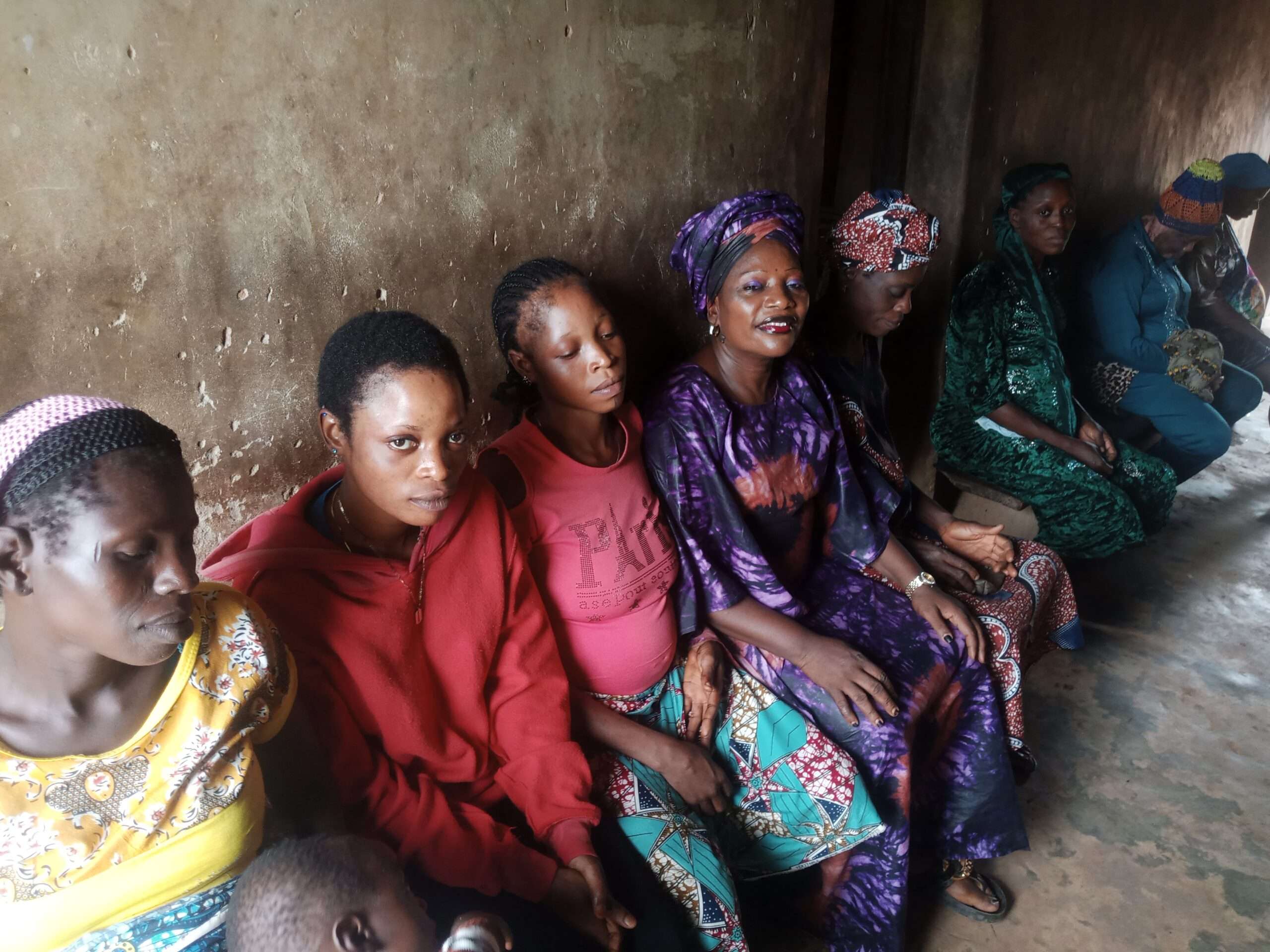
In Ogun State, inadequate modern healthcare facilities lead many pregnant women to choose traditional birth homes. In this report, Oladejo Adebayo, highlights this trend in Sagamu and Ijebu East, where traditional birth attendants (TBAs) are preferred due to government’s neglect of rural primary healthcare, despite the Basic Health Care Provision Fund (BHCPF).
On a sunny afternoon on 24 February, 2022, Omobolanle Olayinka, a 35-year-old trader who resides at Ayepe Road, Sagamu Local Government Area (LGA), Ogun State, began experiencing severe stomach discomfort. Since she was five months pregnant, she hurried to Agura Primary Healthcare Centre (PHC) in Sagamu, where she had registered for antenatal care services. Upon arrival, she encountered only one staff member, who was visibly overwhelmed with her workload as she attended to several patients simultaneously.
According to Olayinka, the healthcare official who is a CHEW (community Health Extension Worker) advised her to get a pregnancy scan. After the scan, she was given two sachets of Ampiclox and was told to take them at home. Olayinka took the medication around 2 p.m. and rested for a few hours.
However, by 6 p.m., her discomfort returned, and her water broke shortly thereafter. She was rushed back to the health centre, where the staff member, still overwhelmed with work, asked for another scan. This time, she informed Olayinka that the baby was struggling for survival, but there was nothing she could do.
Olayinka was then referred to Divine Hospital, a private hospital in the area. Upon arrival, the doctor there said the medication given to her was inappropriate and that she should have received better care earlier. Sadly, she lost the pregnancy.
Another woman, Mrs Yusuf Olayinka, a resident of Alagbon Mefa, Sagamu, faced a similar ordeal. Over two years ago, she lost her first child four months before delivery. It took her 20 months to conceive again. It was such a traumatic experience that her husband had to insist on finding a reputable traditional birth home for her.
“The experience discouraged me from using any PHC. I have since vowed that I will never step foot in a PHC again. In addition, my husband and his parents have warned me against using a PHC again,” she said.
After months of frantic search, Mrs Olayinka learned about the Olorun Ayo Spiritual Birth Home from a neighbour. In February 2024, she finally became pregnant.
The World Health Organisation (WHO) defines primary healthcare as the cornerstone of a robust health system, covering health promotion, disease prevention, treatment, rehabilitation, and palliative care. Yet, in rural areas in Ogun State, this promise falls short. Many communities lack primary healthcare centres (PHCs) entirely, and existing ones are often inaccessible or poorly equipped.
Consequently, women often with the support of their husbands are increasingly turning to traditional birth attendants (TBAs), leading to an increase in concerns about safety and complications during childbirth.
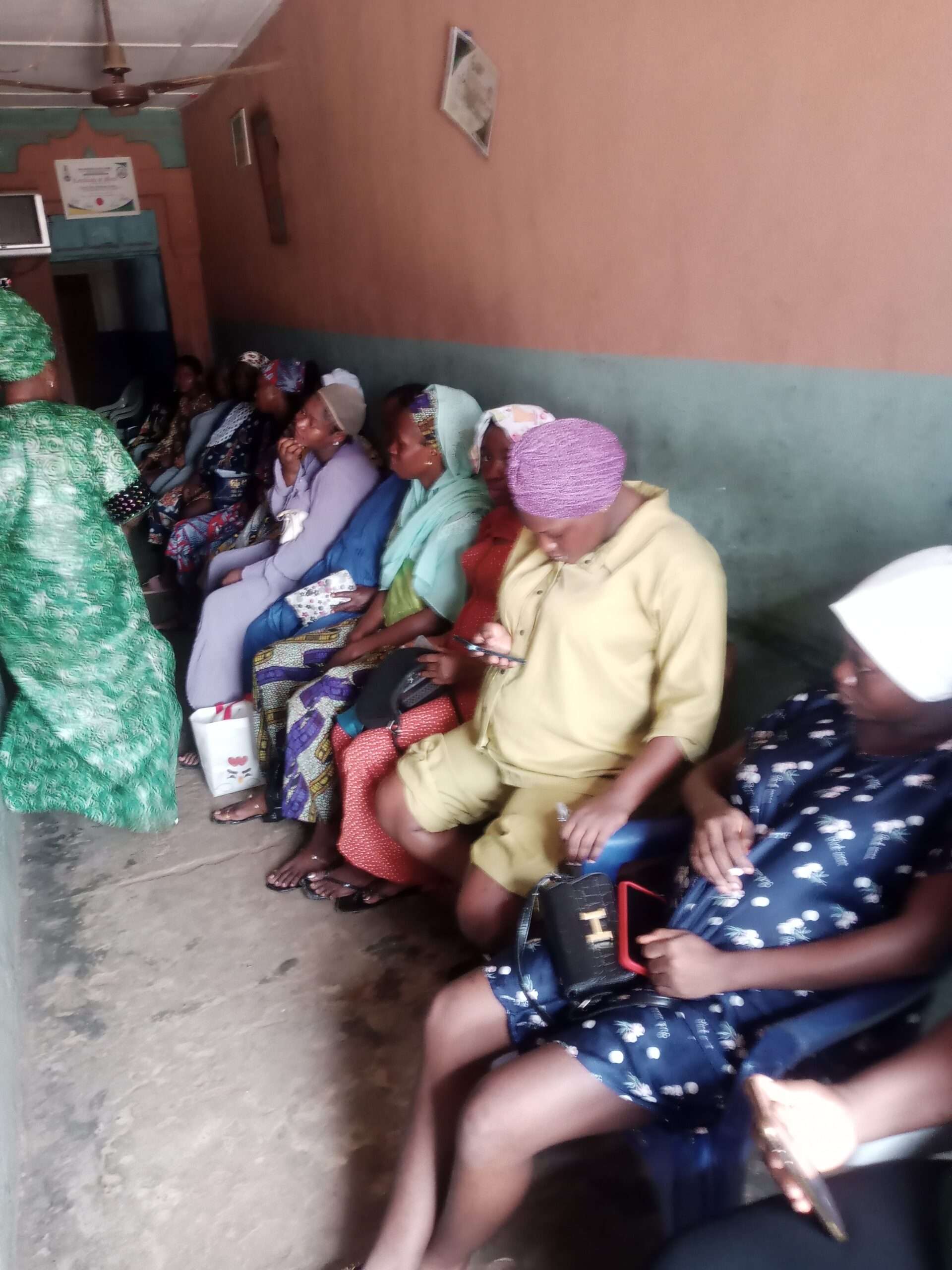
Why women opt for traditional birth attendants over hospitals
According to a 2019 WHO-led study, researchers from Ghana, Guinea, Myanmar, and Nigeria found that out of 2,016 women directly observed, 838 (41.6 percent) experienced physical or verbal abuse during or after childbirth in health facilities. Additionally, 945 (35.4 per cent) of 2,672 surveyed women experienced physical or verbal abuse, stigma, or discrimination. These findings highlight some of the systemic issues in healthcare facilities that contribute to women seeking alternative care options
Given the challenges with formal healthcare facilities in several Ogun communities visited, many women are turning to TBAs for deliveries. Reports of neglect and mistreatment in hospitals contribute to this shift.
Mrs Odunayo Olatunberu, a 42-year-old businesswoman from Itusokun Community, Sagamu LGA, chose a TBA for the delivery of her second child after a series of disappointing experiences with hospitals. She faced frequent strikes and unresponsive staff at healthcare centres in the course of her pregnancy, which heightened her anxiety about potential complications.
“Feeling overwhelmed and anxious, I was ready to abandon hospitals altogether,” Olatunberu said.
“That’s when my mother-in-law recommended Olorun Ayo Spiritual Maternity Home. Now, with my second child on the way, I’m confident in this decision.”
Similarly, 27-year-old trader, Balikis Adeyinka from Alagbon Mefa, Sagamu LGA, opted for the same spiritual home as others during her first pregnancy based on her father-in-law’s warnings about complications at a nearby healthcare centre.
“Besides, my mother-in-law is a friend to the matron. As a first-time mother, I found the support and experience satisfactory during my delivery which happened at midnight.
“I registered my second pregnancy here (with the TBA) while also using a private hospital. However, when I went into labour during a scan appointment at the private hospital, despite being attended to, I lost the baby. This is now my third pregnancy, and I’ve decided to stick with this TBA exclusively,” she said.
Omolade Fasunde, who delivered her first child on 6 May, 2024, at Iya Seun Trado Medical Home in Onipetesi Village, Ijebu East LGA, chose the traditional clinic due to negative testimonies about PHCs in the area. As a first-time mother, she preferred to avoid complications.
Mrs Damilola Joseph, a 25-year-old artisan originally from Togo and now living with her husband in Onipetesi Village, said she chose the TBA because it was the popular choice in the area.
“A lot of people in the community encouraged us to come here when I conceived, and my husband agreed. This is my second pregnancy; I delivered my first at a similar TBA in Ayegbami Village. I’m currently nine months pregnant, and since I started using this place, I have no regrets and no issues with their services. Financially, we are not pressured; we pay what we can afford either before or after delivery,” she said.
Mrs Kehinde Raji, a middle-aged woman who has lived in Onipetesi for over 15 years, applauded Iya Seun Trado Medical Home for offering trust and comfort, qualities she felt were lacking in PHCs. She delivered all her children at the traditional home, including her 12-year-old twins, and plans for her grandchildren to be born there as well.
As indicated from the narratives of women above, our correspondent during the investigation observed that many women’s decisions regarding childbirth were significantly influenced by their husbands. This trend was seen across various communities where husbands often play a crucial role in deciding whether their wives should opt for TBAs over modern healthcare facilities.
Mrs Rashidat Adedayo, chairperson of Ogun State TBAs, Ijebu East Branch, and founder of Iya Seun Trado Medical Clinic, said that many husbands bring their wives to the clinic and ensure they follow health advice, adding that majority of women have their husbands’ consent and, more often than not, directive.
Damilola Joseph shared her experience thus, “When I conceived, many in our community recommended this place, and my husband sanctioned it. This is my second pregnancy; the first was delivered at a similar Traditional Birth Home recommended by my husband.”
Omolade Fasunde, 18, delivered her first child at Iya Seun Traditional Clinic, Onipetesi. She said, “My husband insisted I stay home without working while he focused on farming. So, when it was time to register at a clinic, it was his decision as well,” she explained.
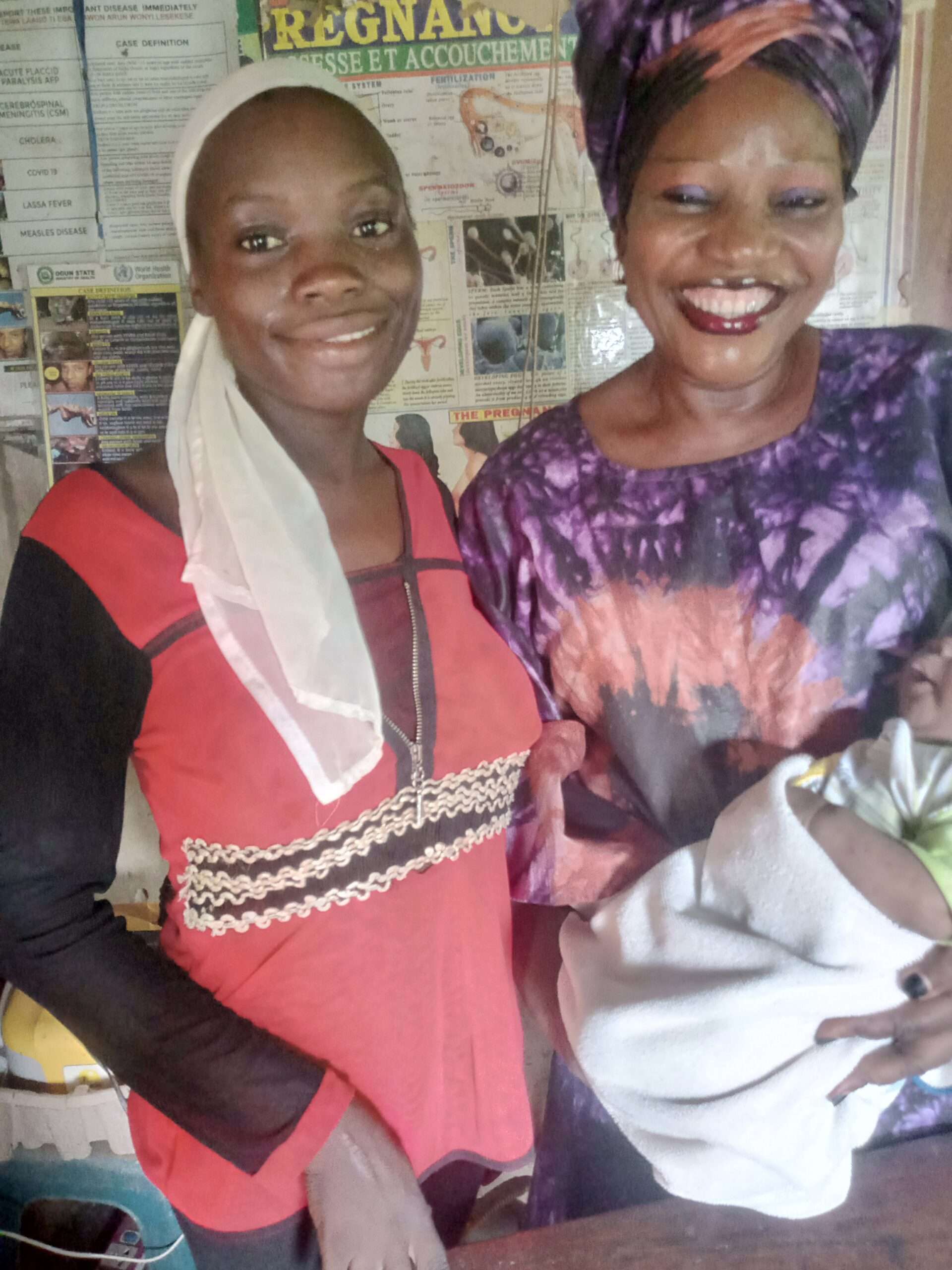
According to Omobolanle Olayinka, the experience of poor medical attention she had at Agura PHC in Sagamu, which made her to lose her first pregnancy discouraged her from using a PHC again.
“I have since vowed that I will never visit any PHC again. In addition, my husband and his parents have warned me against using the PHC again,” she said.
In a chat with this correspondet, Mr Michael Ewenje, an elder in Onipetesi Village said that most women in the village do not work, relying instead on their husbands for financial support.
“We have no other place to deliver our babies apart from Iya Seun Traditional Clinic,” he lamented, citing the difficulty of accessing the nearest primary healthcare centre due to bad roads.
Alfa Abdulwaheed Tewogbade, who is a blacksmith and farmer in Onipetesi said, “We had all our six children delivered by the TBA. She is a lifesaver for our community, providing what the government could not.”
However, Mrs Bolanle Bushirat Adelani, a nurse in Sagamu LGA, expressed concern about how women’s healthcare choices are often considered insignificant by their spouses. She said, “Spousal inequality is prevalent here and troubling, especially among women who live close to their in-laws. Their husbands often assert authority, deciding healthcare choices for their wives even if they are not okay with it.”
How poor investment in primary healthcare enables TBAs business

A report by the JDPC, Ijebu Ode, reveals a troubling trend of budgetary neglect for PHCs in Ogun State. Funding allocated to improve maternal health outcomes prioritises secondary and tertiary facilities in urban areas, leaving rural PHCs struggling with pre-existing challenges. This lack of investment compounds existing issues with primary healthcare services, thereby jeopardising maternal health outcomes in these underserved communities.
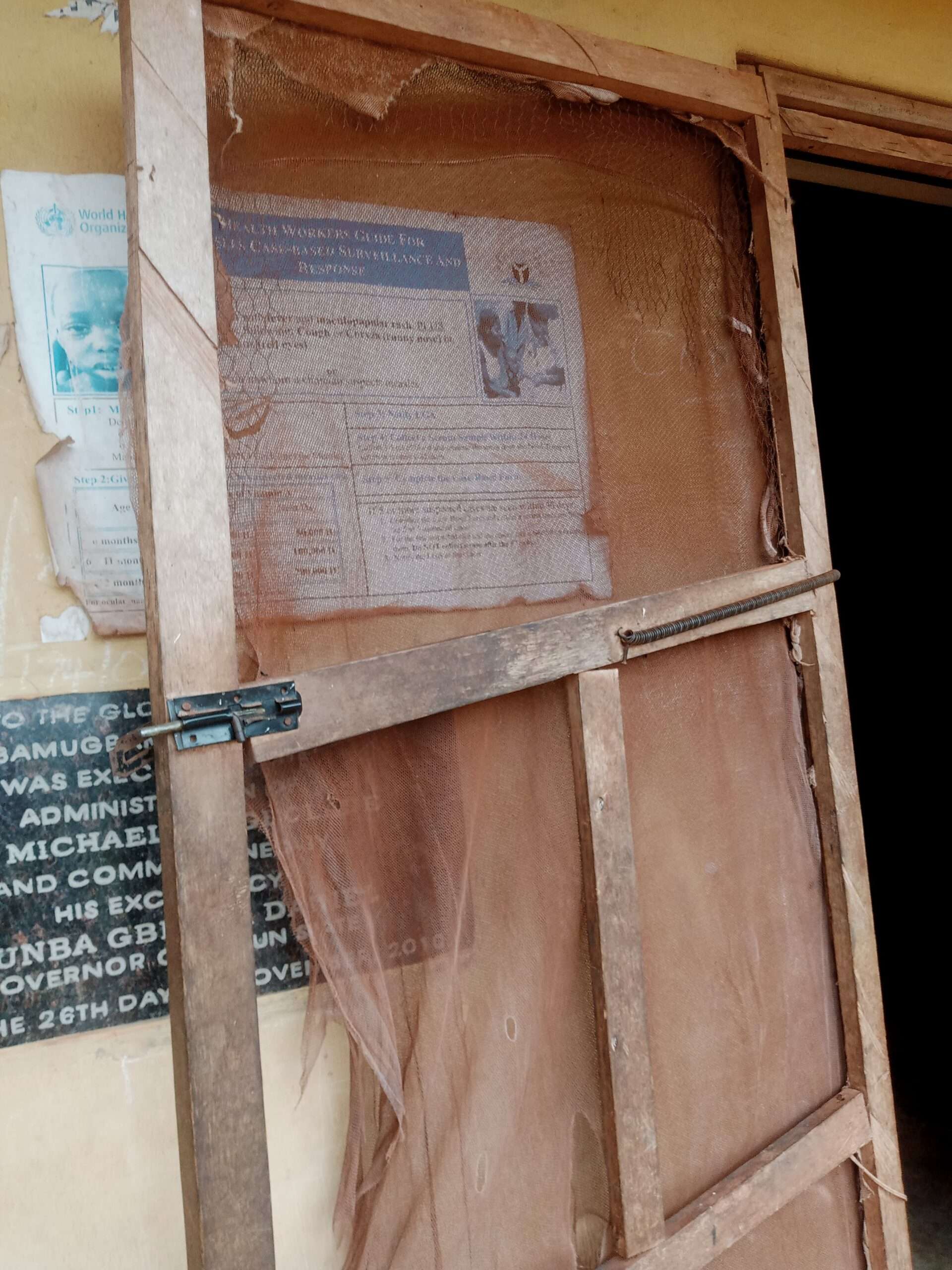
Although Ogun State allocated a significant portion, N51.5bn, of its 2023 budget for health expenditures, the distribution across healthcare entities raises concerns. Funds were directed towards the ministry of health, the health insurance agency, and teaching hospitals, while the critical role of PHCs in ensuring accessible maternal healthcare appears under-resourced.
Of the Ogun State Health expenditure budget for 2023 N51,533,917,617.88, ministry of health got N9,306,845,783; the Ogun State Health Insurance Agency got N890,279,856; Ogun State Primary Health Care Development Board, N15,230,879,396; Preparedness & Response Project N38,143,990; Ogun State Road Safety Advisory Council (ministry of health) N24,788,134; Olabisi Onabanjo UniversityTeaching Hospital N10,605,685; Ogun State Hospitals Management Board, N7,869,287; State Hospital, Sokenu, Abeokuta, N1,932,561,992; State Hospital, Ijebu Ode N1,329,798,828; State Hospital Ota N1,193,828,896; State Hospital, Ilaro, N606,209,050; State Hospital, Isara, N585,429,679; State Hospital, Ifo, N698,388,983; Ogun State Alternative Medicine Board, N361,166,941; and the College of Health Technology, Ilese, got N860,622,213
In spite of the significant investment in the Ogun State Primary Healthcare Development Board, a lot of gaps still exist in healthcare services in the state. Findings from Gbamugbamu, Onipetesi, Agboro, and Ojelana communities in Ijebu East LGA reveal a disturbing reality.
Local healthcare centres are in a deplorable state, suffering from failing infrastructure, insufficient equipment, understaffing, and a lack of basic necessities like road, power and proper maintenance. These conditions render them unsuitable for providing adequate maternal healthcare services.
Pregnant women and nursing mothers in these communities are at the receiving end. They narrated to this reporter the challenge of traveling long distances on dusty and poor roads to access basic healthcare in the area.
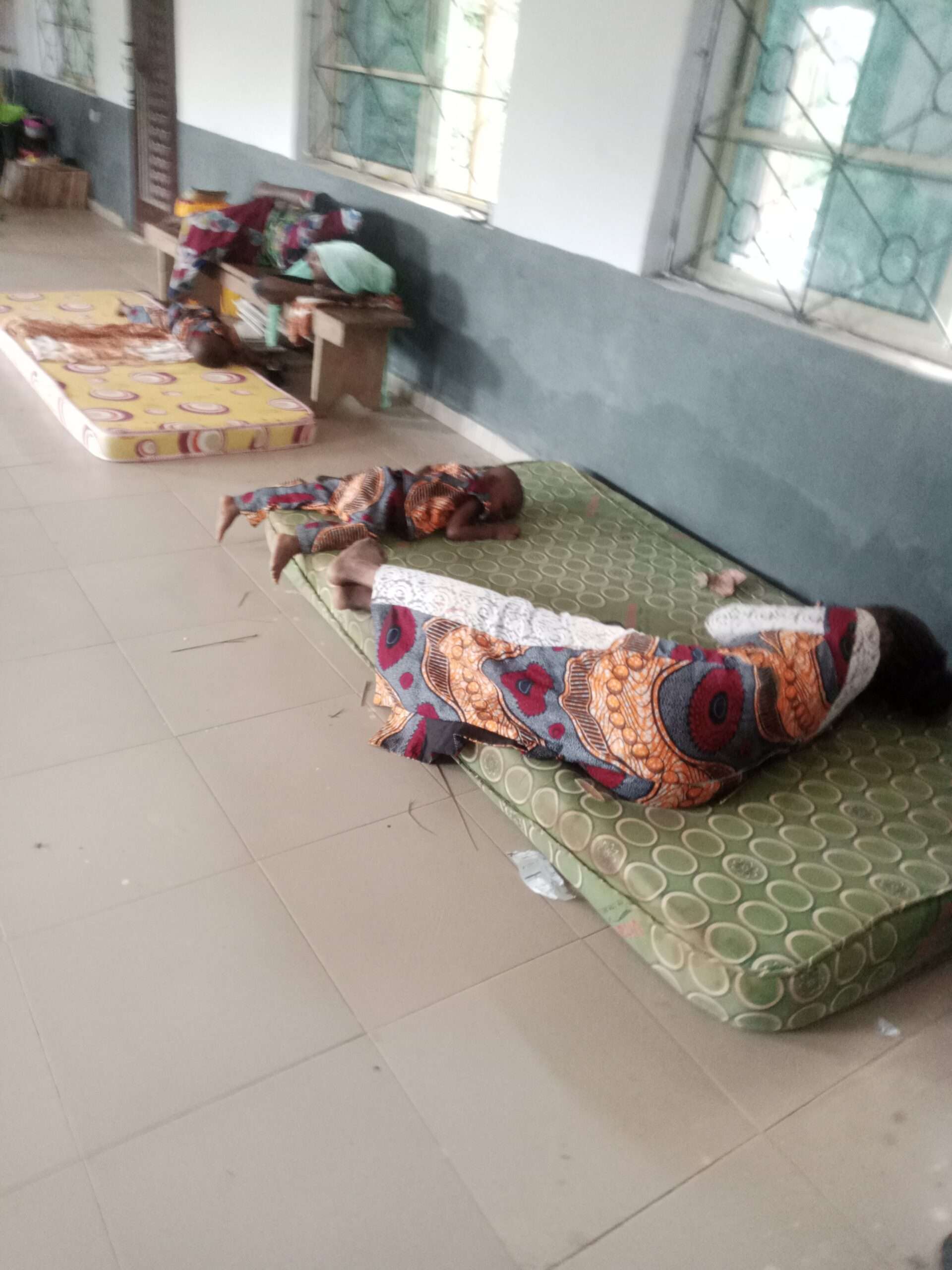
A resident of Ojelana community, locally known as ‘Olori Odo’ expressed concerns about health emergencies at Ojelana PHC in the night. He noted that the health facility often refers patients to Ogbere, approximately five kilometres away, along a very bad road.
A visit to Gbamugbamu PHC in Ijebu East LGA of Ogun State further reveals the harsh reality of healthcare neglect in rural communities. Torn windows, broken furniture, and a thick layer of dust covering medical equipment shows that the facility is in dire need of repair and resources. Gbamugbamu community is situated within a government forest reserve area and is predominantly inhabited by farmers. The health facility is surrounded by bushes and a few houses, with access via a dusty and rough road.
The only staff available, Mrs Fatimoh Jimoh, a CHEW, lamented the lack of patronage from residents. According to Jimoh, who is nursing a few months old baby herself, “We conduct deliveries here, but many people prefer not to use this facility. They often register just for the sake of it and later opt for delivery at nearby TBAs or even at home.”
She continued: “We go to their homes to encourage them to come here, but they cite the lack of conducive conditions as their reason. Despite its deplorable state, this PHC is still cleaner and more conducive than the mud houses where they often deliver,” she said.
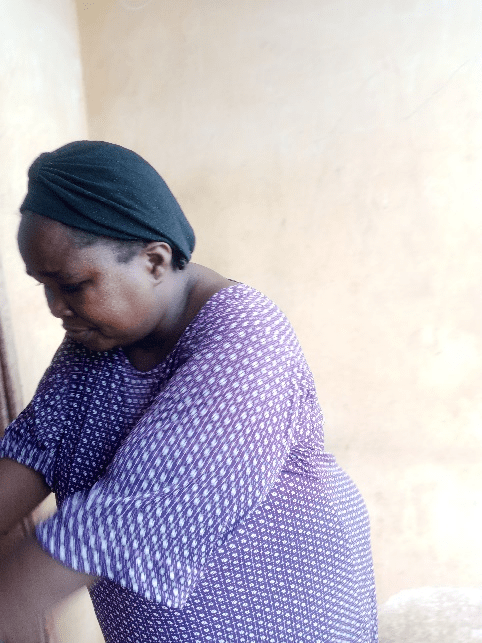
Identified as Mrs Oyewusi, the facility’s head and a qualified Principal CHEW, arrived about 30 minutes later. She lamented the challenges faced by the PHC, including the lack of access to clean drinking water, and the absence of electricity for several years.
“We don’t have clean water. We rely on the well in front of the facility. Pregnant women and other patients avoid staying here due to insecurity, mosquito infestations, and inadequate bed spaces. Most patients don’t linger because of these issues. Despite having seven registered pregnant women, only about two attend antenatal sessions regularly,” she said.
Mr Dauda Alade, who is the ward development committee (WDC) chairman in the area, confirmed that the health centre still enjoys little patronage but stressed the urgent need for maintenance and upgrades to meet up with national standards. The National standards set by the NPHCDA stipulate a minimum of 24 staff members for a primary healthcare centre, including medical officers, nurses, midwives, pharmacists, and support staff.
“If this centre is well-maintained and equipped, it wouldn’t appear as neglected as it does now. Since I became chairman in 2010, the initial influx of patients has dwindled. Imagine a woman in labour at night with no light and only one usable bed. It’s a dire situation, and I’ve encountered snakes here more times than I can count,” he lamented.
Unlike Gbamugbamu PHC, the Ojelana facility has undergone recent renovation and improvement, but residents describe it as ‘Big Body, No Engine.’
The PHC is registered to provide a wide range of services including medical, surgical, pediatric, special clinical services, antenatal care, immunisation, HIV/AIDS services, non-communicable diseases, family planning, nutrition, health education, and community mobilization. However, despite the renovations, the centre still faces challenges with inadequate equipment. Wards and offices were observed empty, and a few patients seen were resting on makeshift mattresses on the floor during a visit by this reporter.
Mrs Abiodun Yusuf, the matron at Ojelana, shared her experience: “I was posted here in February this year. But since then, we haven’t recorded any delivery. Some pregnant women do come, but they often don’t return. Currently, we have registered pregnant women, but we haven’t established regular antenatal days due to low numbers. Our operations are hindered by lack of electricity and water supply.”
According to findings, the centre relies solely on solar power for lighting and fetches water from nearby wells and streams. Despite serving the community round the clock, transportation remains a challenge, with one staff member per shift.
Notoriety of TBAs in Ogun communities
One of the most significant concerns regarding TBAs is their lack of formal medical training. Unlike certified midwives and obstetricians, TBAs often rely on traditional practices and may lack comprehensive knowledge of modern medical procedures and emergency interventions. According to experts, this can lead to complications during childbirth that they are not equipped to handle, increasing the risk of maternal and neonatal morbidity and mortality.
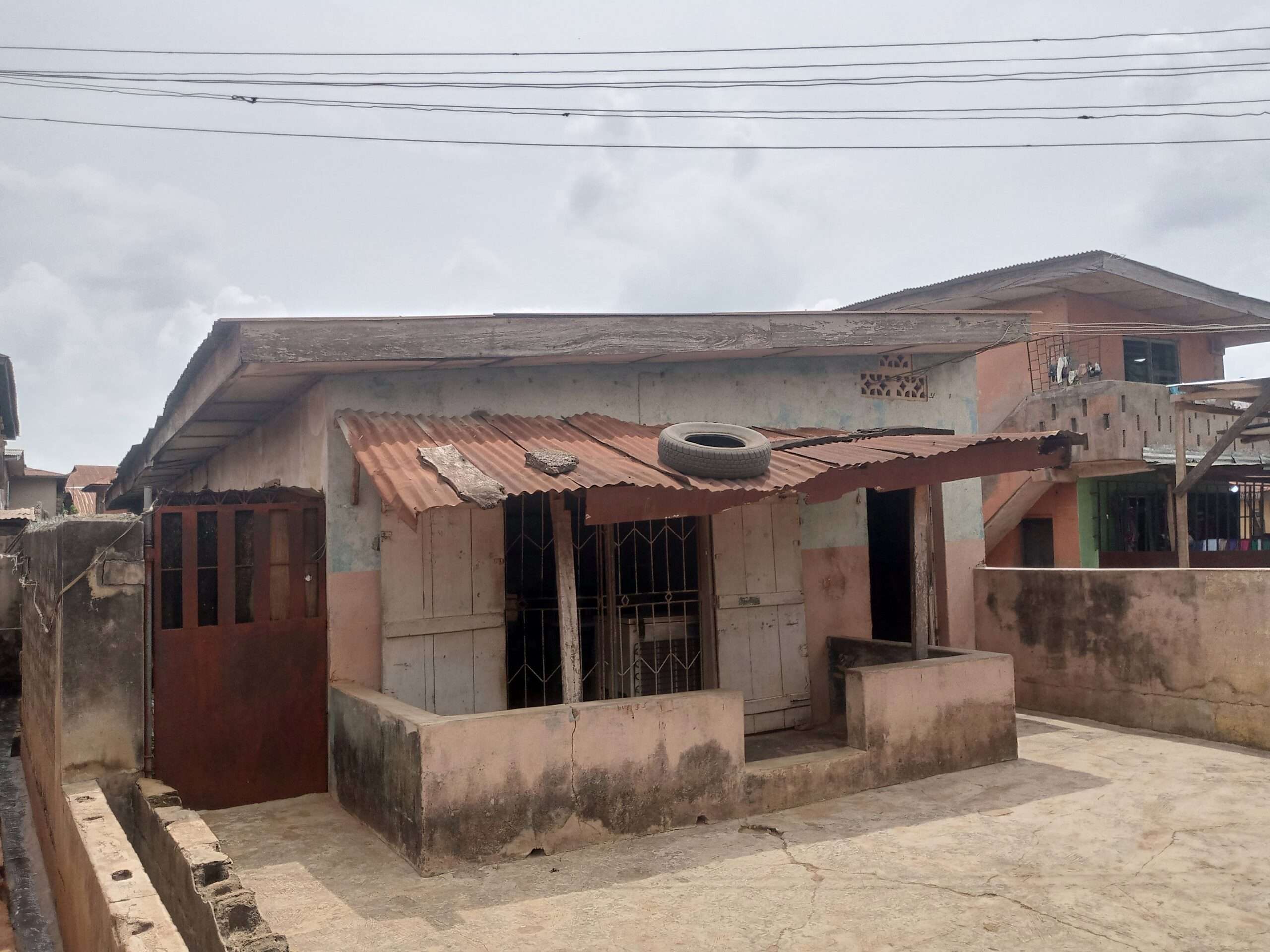
Ogun State has the highest child mortality rate in Southwestern Nigeria, with 56 out of 1,000 infants dying before their first birthday in 2022. Community members attribute some maternal deaths to TBAs, citing the poor state of PHCs and the lack of emergency response systems as contributing factors.
During visits to several health facilities, health workers expressed concerns about TBAs instilling fear in pregnant women. Many women register at both TBAs and PHCs but are often warned against delivering at PHCs by their families, particularly husbands and in-laws.
At Itusokun PHC, Ward 6, Sagamu, Mrs Abosede Omoniyi, a community health worker, highlighted the challenges they face despite the centre’s recent upgrade to a full primary healthcare facility with round-the-clock services in February 2024.
“We’ve encountered cases where deliveries become complicated, and despite referrals to General Hospitals or Ogun State University Teaching Hospital, women return to TBAs, believing in their ability to ensure safe deliveries and fearing potential harm or curses if they do not comply,” said Omoniyi.
A Consultant Clinical Pharmacologist and Malaria Scientist at University College Hospital (UCH), Ibadan, Oyo State, Dr Samuel Obaro, believes TBAs have increased the maternal mortality rate in the country rather than reduced it. He says outcomes are better when pregnant women are assisted by skilled birth attendants and maintains that the Federal Ministry of Health has not adopted TBAs practice as a line of action in maternal care.
How cultural beliefs hinders healthcare delivery
Traditional healing practices, deeply entrenched in many communities, often intersect with modern medical advice. According to experts, a reliance on herbal remedies, spiritual healing, or ritualistic practices can sometimes lead individuals to forego evidence-based treatments. In some cases, these practices can pose direct risks to patients, such as the use of unsterilized instruments or harmful substances.
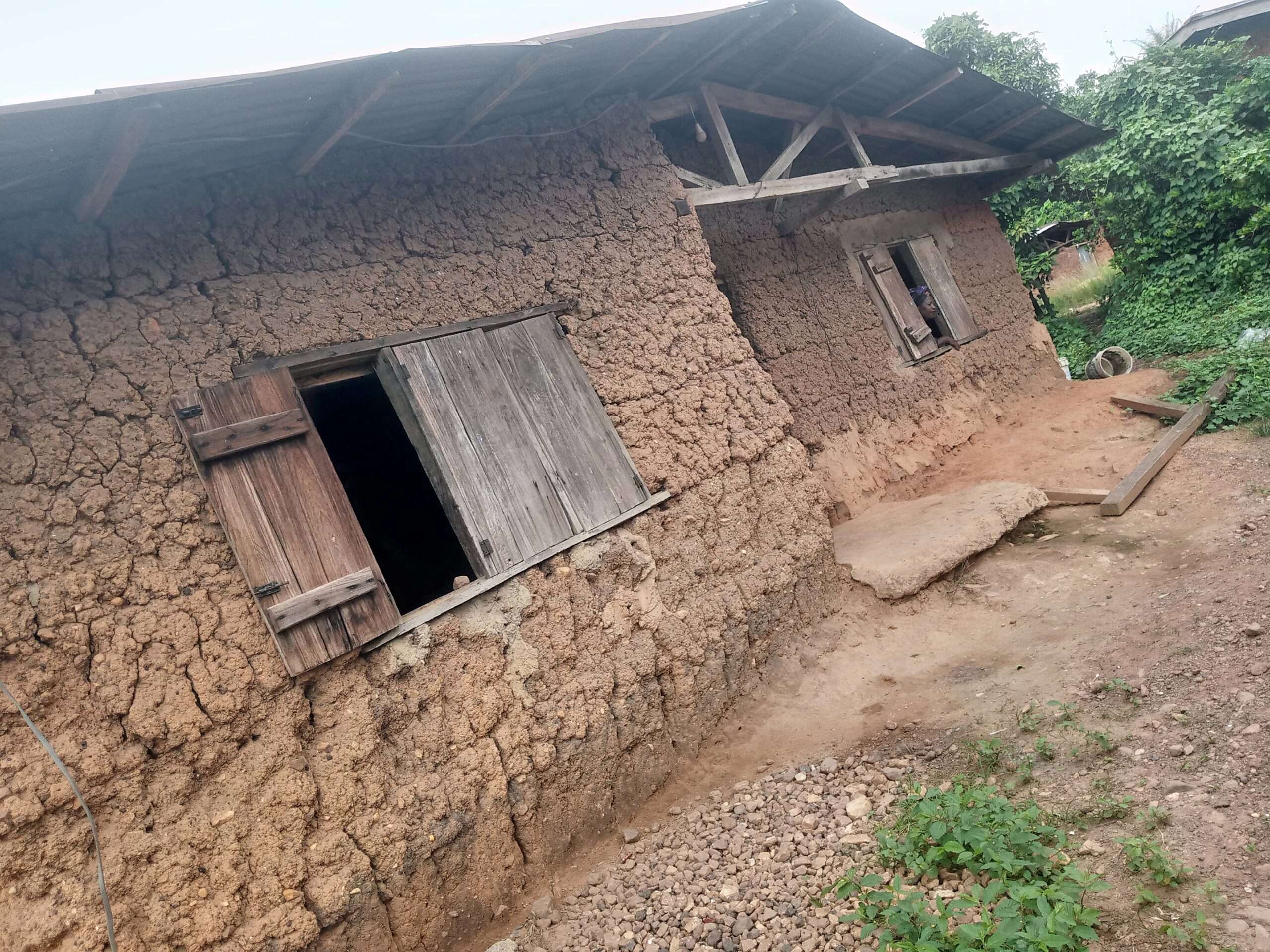
Mrs Bolanle Bushirat Adelani, head of the reproductive health unit and apex nurse for Sagamu LGA, attributed the prevalence of traditional childbirth practices to cultural and traditional beliefs.
“There’s a strong adherence to traditional methods in our communities,” she explained.
“This often involves a belief in the superior abilities of TBAs. While we respect cultural practices, our focus is on promoting safe and effective maternal healthcare. We’re not competing with them but advocating for professional and safe practices. Collaboration is essential as we cannot address these challenges alone.”
The impact of cultural beliefs on healthcare is sharply clear, especially given Nigeria’s critical shortage of medical professionals. Despite the World Health Organisation’s recommendation of a 1:600 doctor-to-patient ratio, Nigeria has only 24,000 licensed medical doctors available in the country as at 2022, less than 10 percent of the number needed to meet WHO standards. This shortage contributes significantly to high maternal and infant mortality rates. It is estimated that more than 60 percent of births occur outside medical facilities in Nigeria, stressing the vital role TBAs play in maternal health care, particularly in underserved rural areas.
In marginalised Ogun communities visited, delivery statistics at TBAs vary significantly. Ola-Iya Trado Medical Home in Agboro Village, Ijebu East LGA, reported 25 deliveries and 12 registered pregnant women so far this year. Olorun Ayo Spiritual Maternity Home in Alagbon Mefa, Sagamu, recorded 60 deliveries with 25 pregnant women on its register. Similarly, Iyanu Oluwa Mission Home in Isote, Makun Sagamu, had 10 deliveries and 5 pregnant women registered, while Iya Seun Trado Medical Clinic reported over 40 deliveries and 25 pregnant women on its register. In contrast, nearby Ojelana PHC and Gbamugbamu PHC have not recorded any deliveries in the last four months, with fewer than 10 pregnant women on their registers.
Experts react
Dr Oluwatoyin Ajayi-Osakwe, CEO, Foundation for Family Reformation and Medical Director at Shelters Hospital, Lagos, acknowledged the complementary role of TBAs in healthcare, especially in underserved areas where formal healthcare access is limited. He noted that TBAs can provide initial care and support critical for pregnant women who might otherwise receive no care.
However, Ajayi-Osakwe cautioned against the risks associated with TBA services, particularly in managing complicated deliveries. He expressed concerns that TBAs may lack adequate skills and equipment to handle emergencies, which could lead to adverse outcomes for mothers and infants.
In his opinion, Dr Michael Obaro, senior lecturer in the Department of Pharmacology and Therapeutics at the University of Ibadan, Oyo State, noted that although collaborative healthcare is a practice that has been established in advanced countries like China, US and others, in Nigeria caution should be applied due to safety and quality control issues.
“For us to think about incorporating traditional birth practices into the conventional healthcare, we need to do a lot of things, including awareness creation, education and orientation. We need to find a way to control and ensure their quality control before their methods can be allowed to be used. I know there are a lot of people that patronise the TBAs, but it’s not one that is recognised yet by the official health system. Conventional healthcare is highly regulated, so for the TBAs to be recognised, there should be a framework for regulation.
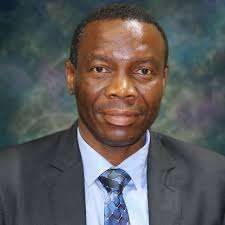
Also, the Managing Director, Crystal Herbal and Wellness, Damilola Ogunlola, emphasised the need for a comprehensive approach to address the preference for traditional birth homes among underage pregnant women. “Improving healthcare access and affordability, increasing education and awareness, and amongst others are key to achieving better health outcomes for young mothers and their babies.”
Reactions from government officials
In a telephone interview with our correspondent, the Ijebu East LGA Chairman, Hon. Adetutu Elizabeth Oyesanya stressed the efforts of the local government towards improving health facilities in the area.
“I am deeply committed to healthcare and assure you that all necessary actions will be taken to address the challenges faced by PHCs in the local government area. We are aware of existing difficulties and are prepared to resolve them.
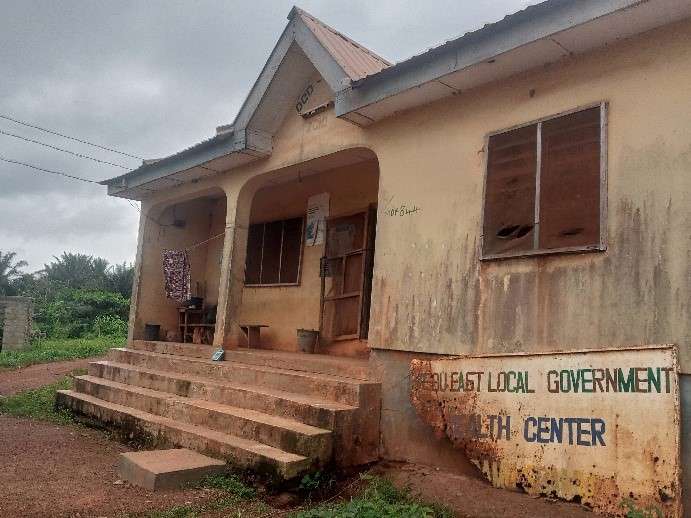
“The condition of some health centres in our local government has been a significant concern for me. The State Governor, Dapo Abiodun, is equally committed to prioritising healthcare. In my eight -month tenure, we have undertaken several initiatives to improve primary healthcare centres. This includes the rehabilitation of Ojelana Health Centre in Owu Ijebu; Atoyo Health Centre in Ijebu Itele; and the construction of a new Primary Health Centre at Orita J4, serving nearly 30 villages in that area. We have also installed solar street lights at several health centres across the Local Government,” she said.
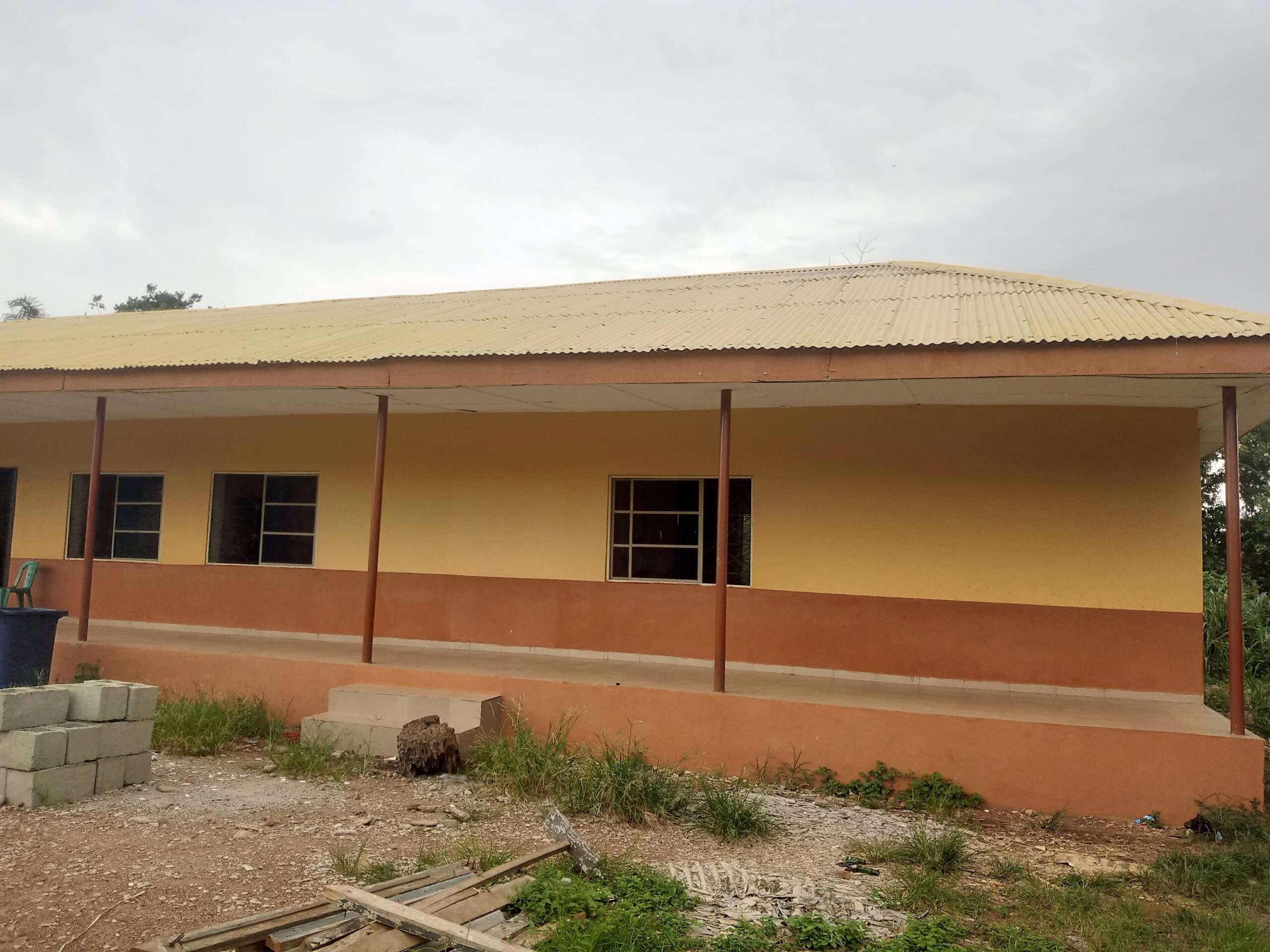
Furthermore, she said that the LGA has implemented measures to monitor community engagement with healthcare infrastructure in the area.
“We have implemented measures to monitor community engagement with health facilities, sensitisation efforts by health personnel on the importance of antenatal and postnatal care for pregnant women in rural areas, and ongoing monitoring of disease outbreaks and immunisation efforts within each community.
“The Governor has initiated new electrification projects, resulting in restored electricity to some areas, although Ojelana currently remains without power.”
Meanwhile, Dr Tomi Coker, the commissioner for health in Ogun State, emphasised in a telephone interview that the state government is steadfast in improving healthcare interventions. She highlighted the “Ibidero” initiative launched earlier this year by the state government, aiming to benefit 15,000 pregnant women as part of efforts to reduce maternal mortality.

Coker stressed that, “The state government is committed to prioritising maternal healthcare by offering them free health insurance covering for antenatal care and delivery, including cesarean sections. Each woman also receives 5,000 Naira upon delivering at our health centres.”
“Ibidero” is a health insurance scheme targeting vulnerable pregnant women across Ogun State’s 20 local government areas. Enrolled women receive free maternal health services at designated health centres to minimise pregnancy-related complications. Additionally, participants receive a stipend upon delivery, and registrations are facilitated at hospitals within walking distance to their homes. Last year, 3,000 pregnant women benefited from the pilot phase of the program.”
Regarding collaboration with TBAs, Coker recognised their significant presence and patronage, indicating they are indispensable partners. She emphasised the need for collaboration and support from the government to ensure safe maternal healthcare practices across the state.
However, efforts to reach Dr Elijah Ogunsola, Executive Secretary of the Ogun State Primary Health Care Development Board, proved abortive. Despite multiple attempts via phone calls and WhatsApp messages, he could not be reached, even though the messages were delivered and read.
*This report is supported by the International Budget Partnership IBP and the International Centre for Investigative Reporting (ICIR)










